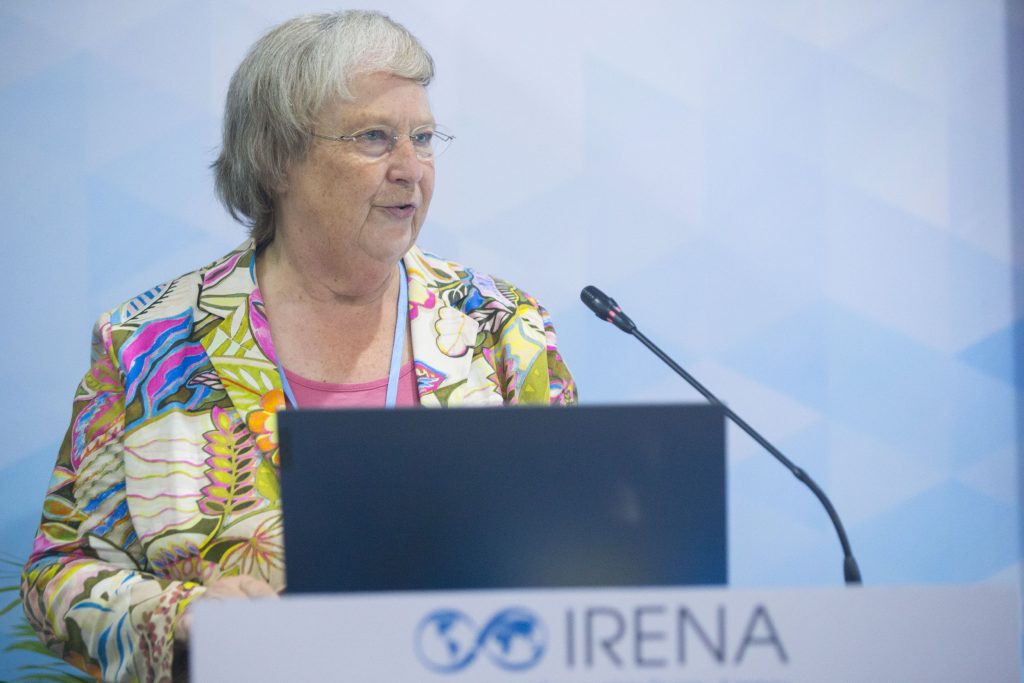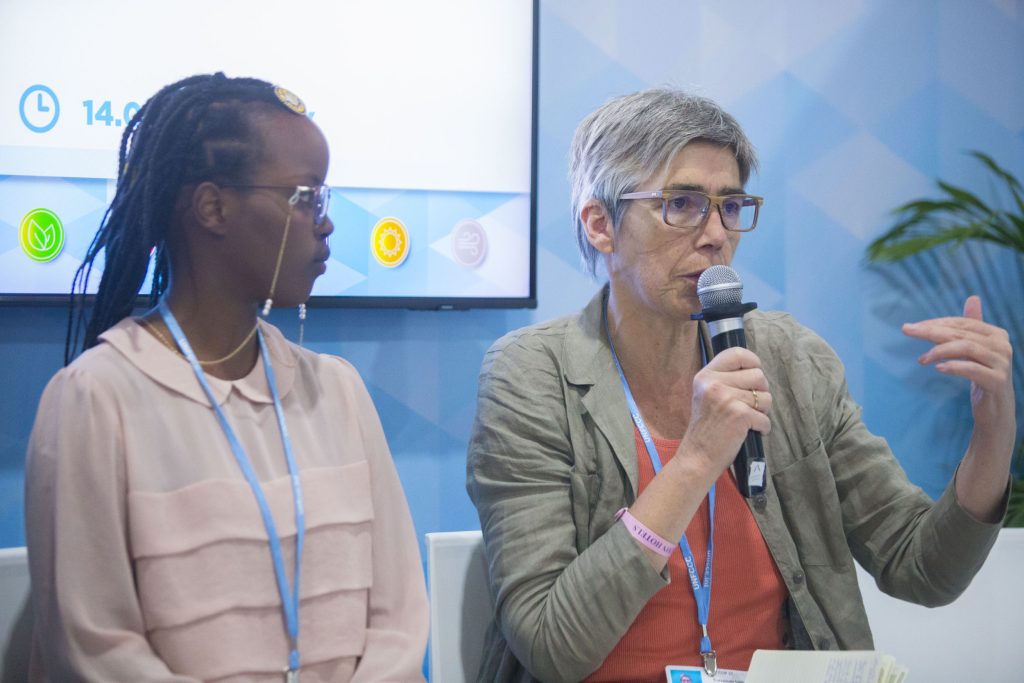


At the margins of COP27 in Sharm El Sheikh, Egypt and in collaboration with the International Renewable Energy Agency (IRENA) and the Climate Vulnerable Forum Global Parliamentary Group (CVF GPG), the GRC organised a Legislators Dialogue to highlight successful multi-actor partnerships (MAP), discuss how they can accelerate the deployment of renewable energy and explore further options for scaling up these efforts, particularly in G20/G7 countries as well as in climate-vulnerable states.

Audience and Speakers (f.l.t.r.): Hon. Bärbel Höhn, GRC Chair, Francesco La Camera, IRENA Director General, , Gurbuz Gonul, Director, Country Engagement Partnership, IRENA, Jared Huffman, U.S. Congressman
Under the theme “Multi-Actor Partnerships for Renewable Energy”, the moderated dialogue among legislators from different parts of the world highlighted key points that are important to designing and enforcing policies that can upscale renewable energy:
- Multi-Actor Partnerships (MAPs) emphasise how different actors can support the just energy transition to ensure that climate adaptation commitments are turned into action.
- Beyond national governments, international donors and the private sector, parliaments and parliamentarians equally play an indispensable role in forging MAPs by linking international and national policies with the needs of the constituents they represent. International exchange as well as multi-stakeholder partnerships are important for the successful implementation of new renewable energy legislation.
- As policymakers, it is imperative to develop the requisite enabling regulatory frameworks to de-risk investments to provide incentives to scale-up investment into renewables by either reducing, transferring, or compensating for risk, including, streamlining processes for obtaining permits, ensuring the enforcement of contractual obligations and mechanisms for recourse.
- As representatives of the people, Members of Parliament must guard against the social acceptance risks of renewable energy by ensuring that they scale-up awareness-raising initiatives with communities and end-users through committee work and representation efforts.

Hon. Bärbel Höhn, GRC Chair
- Partnerships may entail cross-sectoral committees to enhance the energy transition through various fields simultaneously.
- As Members of Parliament, it is crucial to engage with members of different parties to strengthen the political will jointly toward a just energy transition through cross-party initiatives.
- The level of political will determines effective actions by Members of Parliament to integrate renewable energy in national and regional legislation.
- Effective mechanisms to facilitate a strong legislative framework for renewable energy may be different in every country as they must consider local conditions (economic, technical, natural environment, etc). Regardless of the country, however, most legislators face three key challenges:
- demand and expectations by local constituency and first and foremost by lobby groups and private sector companies;
- the complexity of issues to be managed as Members of Parliament and difficulty for many legislators in focussing on only one particular area, such as renewable energy and related topics;
- re-election and government dynamics.

Panelists (f.l.t.r.): Cherop Soy, Hon. Jutta Paulus, Member of the European Parliament
- International and national networks and partnerships on renewable energy (and the “how to”) can have a positive impact on demand and complexity management, and constituency persuasion, as there are de facto benefits and co-benefits attached to the successful uptake of renewable energy.
- Youth engagement and partnerships with youth constituencies are important not only to boost the energy transition across sectors but also across generations. Today’s youth will be most affected by the outcome of our present actions. Young people have an essential role to play in climate action, the just energy transition and climate justice.
- Climate litigation will become increasingly important and court rulings and judges will increasingly ask governments to reconsider existing legislation. This may require more ad-hoc expertise to redesign existing regulatory frameworks for the deployment of renewable energy.
- The necessity of strong financial support to enable accessibility to power and modern technology across nations, regions, and communities also entails the financing of grid modernisation, particularly in rural areas and climate-vulnerable states.
- Education and professional development must be more accessible and relevant to prepare societies for the clean energy transition. Education serves as the foundation to advance the development of necessary skills for a renewable energy future. Adequate education and training will further encourage young people to pursue careers in the renewable energy sector and to take on new roles as energy professionals, decision-makers, entrepreneurs, and leaders.
AGENDA
Moderation: Stefan Schurig
Welcome Remarks
Francesco La Camera, Director-General, IRENA
Keynote Speech
Bärbel Höhn, Chair, Global Renewables Congress
Scene Setting: Multi-Actor Partnerships
- Gurbuz Gonul, Director, Country Engagement and Partnership, IRENA
- Sara Ahmed, Finance Advisor, V20
- Dr. Anzoo Sharma, Deputy Director, Nepal Centre of Rural Technology
Legislative Dialogue: Interventions from Members of Parliament
Panelist:
- Hon. Nina Scheer, Germany
- Hon. Emmanuel Marfo, Ghana
- Hon. Jared Huffman, U.S.
- Hon. Jutta Paulus, European Parliament
- Cherop Soy, IRENA Youth Network and SDG7 Youth Constituency
Additional interventions from the floor from Members of parliament from different regions.
Closing Remarks by Moderator
